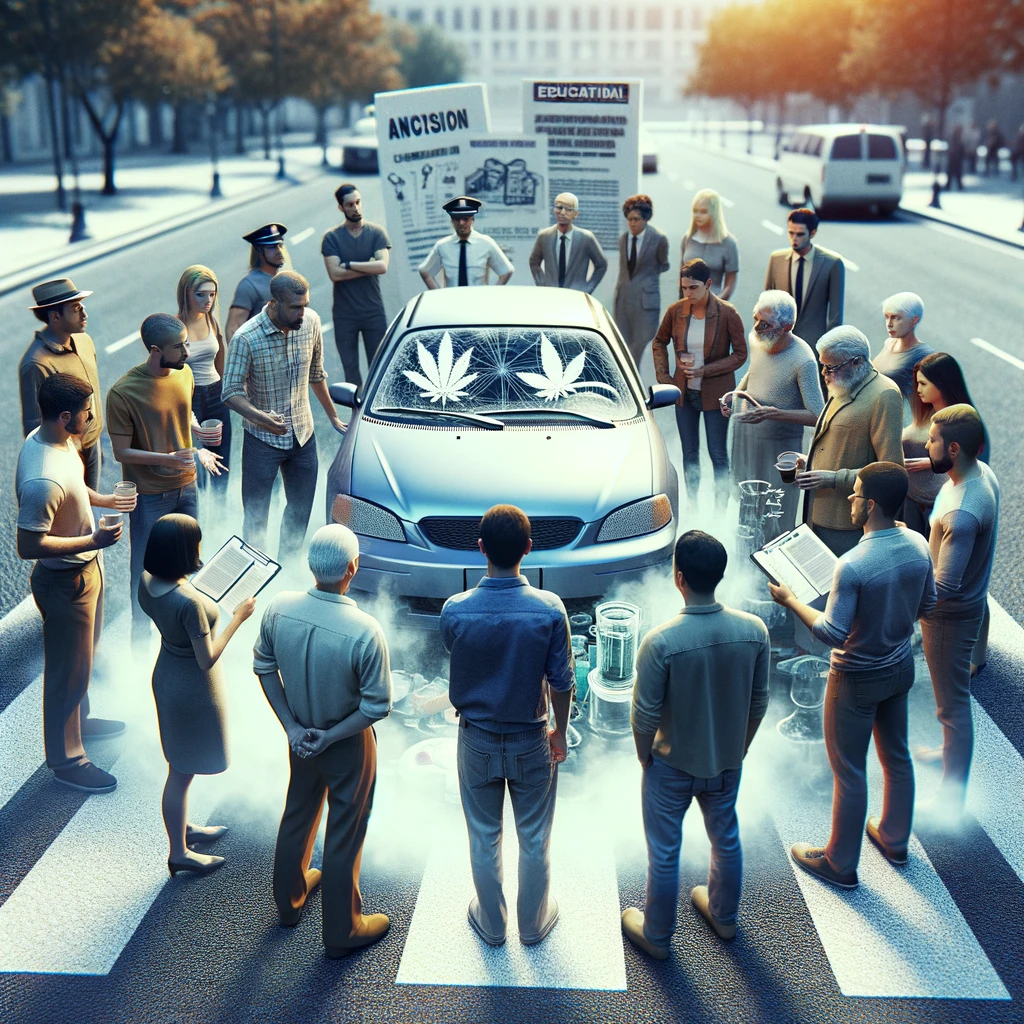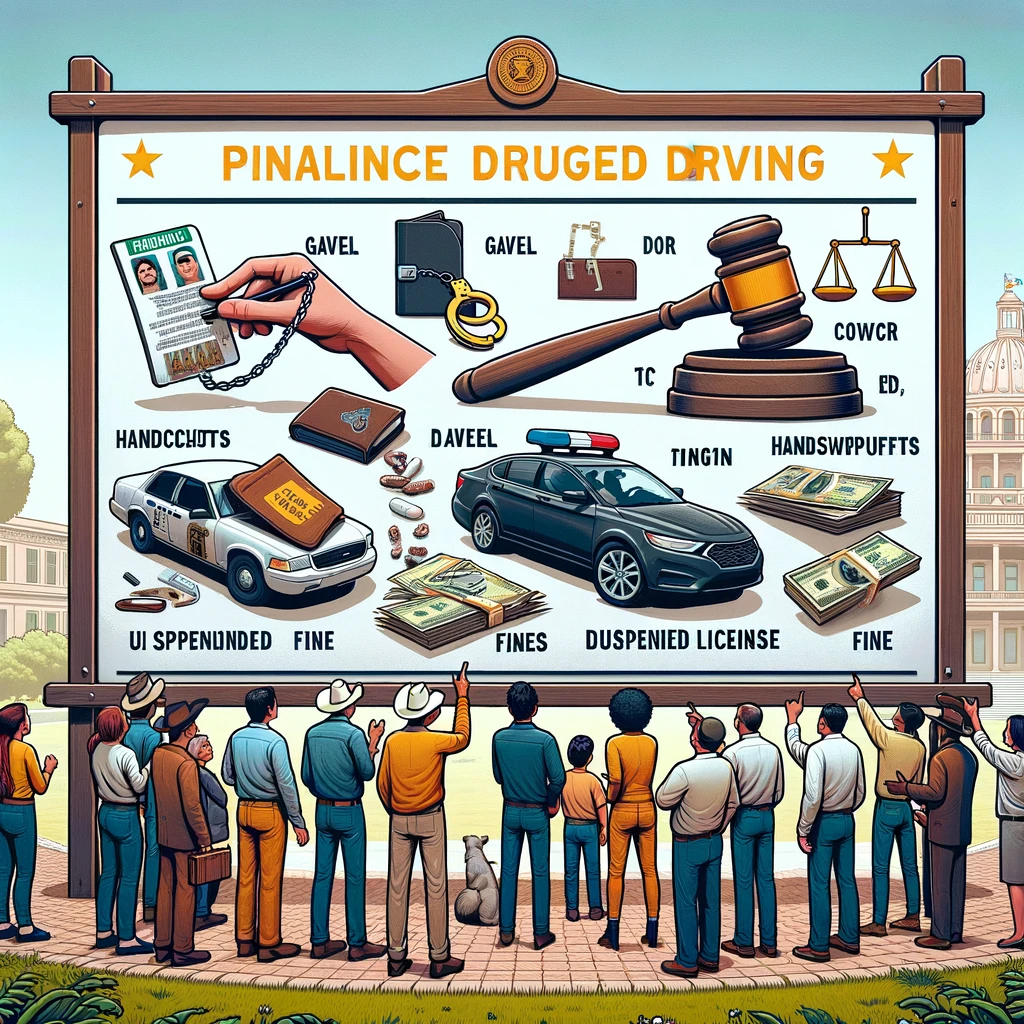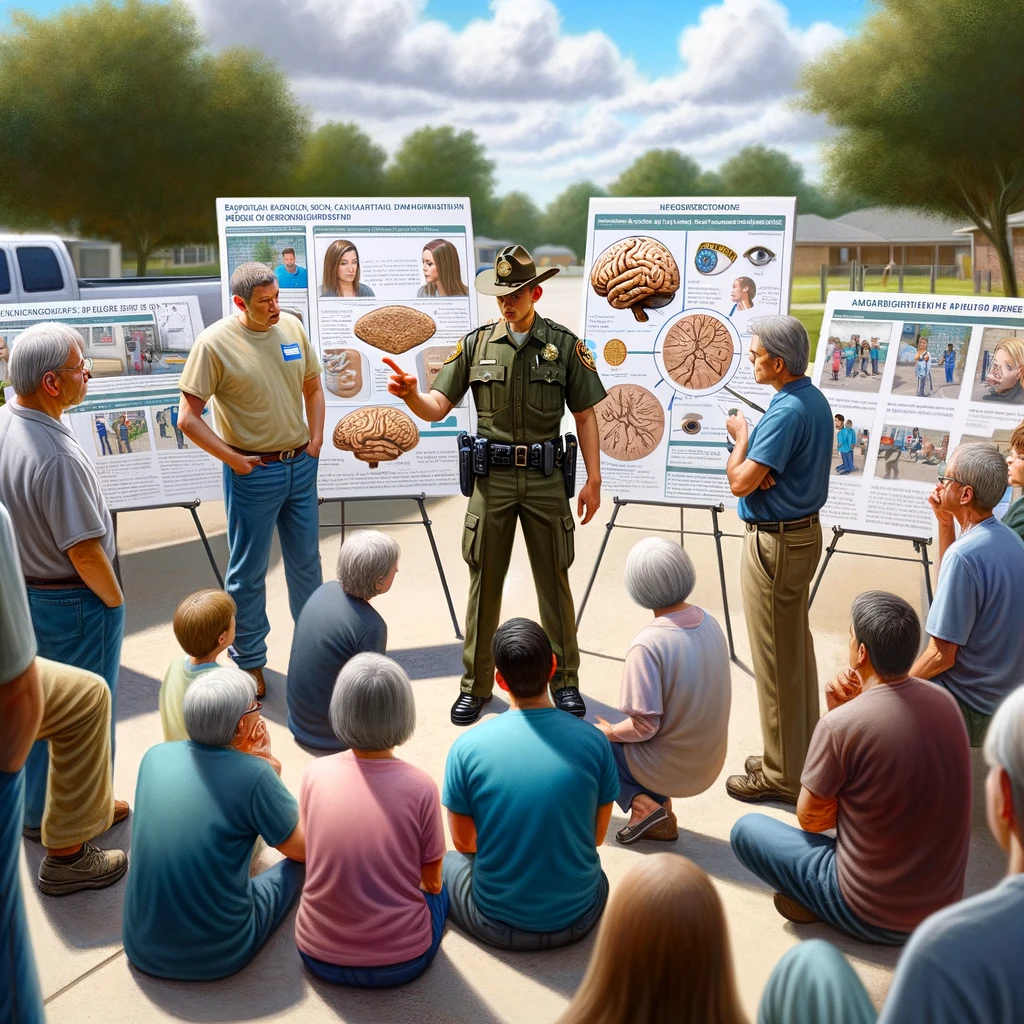
Understanding the legal consequences of drugged driving in Texas is vital. Texas law does not take kindly to drugged driving. The state has strict rules and penalties. But what exactly is considered drugged driving in this context? Let’s dive in.
Imagine cruising the vibrant streets of Texas, the wind in your hair and your favorite song blasting. But then, things take a turn. Perhaps you thought that extra pill or that small joint wouldn’t matter. Oops! Welcome to the not-so-fun world of drugged driving charges in Texas.
Here’s the deal for legal consequences of drugged driving in Texas:
Texas is tough on drugged drivers. Super tough. This blog dives deep into what this means for you or anyone who might slip. From shocking real-life stories to the cold hard facts of Texas law, we’ve got it all. Why should you keep reading? Because knowledge is power, and this power could save you from a world of trouble. Plus, we promise to keep things light and a bit cheeky, even while we talk law and order. So buckle up, we’re going on a ride through the legal consequences of drugged driving in Texas – and it’s going to be enlightening!
Definition and Examples of Drugged Driving in Texas
Drugged driving in Texas means operating a vehicle under the influence of any substance that impairs ability. This includes prescription medications, illegal drugs, and even over-the-counter medicines. For instance, driving after consuming cannabis, even if legally prescribed in another state, is illegal here. Similarly, impairment from medications like opioids or antihistamines can lead to charges.
Texas DUI Laws and Regulations
Texas distinguishes between DUI (Driving Under the Influence) and DWI (Driving While Intoxicated). DUI typically refers to drivers under 21, for whom any amount of drugs or alcohol is illegal. DWI applies to all drivers impaired by substances, including drugs. The state’s zero-tolerance policy for underage driving under the influence is stringent. For adults, impairment is judged based on behavior, physical signs, and chemical tests.

Penalties for Drugged Driving in Texas
Penalties for drugged driving in Texas are severe. They range from fines and license suspension to jail time. First-time offenders can face significant fines and up to 180 days in jail. Repeat offenders face harsher penalties. Additionally, drivers could lose their license for a period, requiring a costly reinstatement process.
| Offense | Penalties |
| First Offense | Up to 180 days in jail, fines up to $2,000, license suspension for up to 1 year |
| Second Offense | Up to 1 year in jail, fines up to $4,000, license suspension for up to 2 years |
| Third Offense | 2 to 10 years in prison, fines up to $10,000, license suspension for up to 2 years |
| DWI with a Child Passenger | State jail felony, fines up to $10,000, jail time up to 2 years |
Impact of Drugged Driving Convictions on Criminal Record
A drugged driving conviction in Texas can stain your criminal record. This makes finding employment difficult, particularly in jobs requiring driving. It can also impact your educational opportunities and professional licenses.
Legal Defenses Against Drugged Driving Charges in Texas
Defenses against drugged driving charges in Texas include challenging the legality of the traffic stop, the accuracy of drug tests, and the interpretation of impairment signs. Lawyers often scrutinize these areas closely in defense strategies.
Process and Procedures in Texas Drugged Driving Cases
After an arrest for drugged driving in Texas, individuals go through booking, arraignment, and possibly trial. The process is complex and filled with legal nuances. Having an experienced attorney is essential.

Comparison Between Alcohol and Drug Impairment
While both are dangerous, the law treats alcohol and drug impairment differently. For alcohol, there are clear legal limits. For drugs, any amount that impairs driving can lead to charges. This distinction is crucial in legal defenses and case outcomes.
Preventive Measures and Public Awareness Programs
Texas has several programs aimed at preventing drugged driving. These include educational campaigns and law enforcement initiatives. Public awareness programs emphasize the dangers and legal consequences of drugged driving.
Role of Drug Recognition Experts (DREs) in Texas
DREs play a critical role in identifying drugged drivers. They undergo special training to recognize signs of drug impairment. Their testimonies often carry significant weight in court.

Case Studies and Real-life Examples
Real-life examples of drugged driving cases in Texas can offer insights. They illustrate the legal processes, penalties, and defenses associated with drugged driving charges.
Impact of Drugged Driving on Auto Insurance in Texas
A conviction for drugged driving can skyrocket your auto insurance rates. Insurers view drugged drivers as high-risk clients. Consequently, premiums increase significantly.
Rehabilitation and Recovery Programs for Offenders
Texas offers rehabilitation programs for those convicted of drugged driving. These programs focus on recovery and preventing future offenses. Participation can sometimes influence court decisions and penalties.

Legal Process for Contesting Drug Test Results
Contesting drug test results is a complex process involving scientific evidence and legal arguments. It requires a knowledgeable defense to challenge the methods and findings of drug tests.
Interstate Differences: Texas vs. Other States
Drugged driving laws vary significantly between states. Texas is known for its strict penalties and zero-tolerance policies. Comparing these laws can highlight the unique legal landscape of Texas.
Future Trends in Drugged Driving Legislation in Texas
Legal landscapes evolve, and Texas is no exception. Anticipate changes in legislation, particularly as attitudes towards certain drugs and their legal status shift. Staying informed is crucial.

In wrapping up: the legal consequences of drugged driving in Texas
The legal consequences of drugged driving in Texas are severe and multifaceted. From hefty penalties to long-lasting impacts on one’s life, the stakes are high. Awareness, caution, and legal knowledge are your best defenses against the harsh realities of drugged driving charges in Texas. Stay informed, stay sober, and stay safe on the road.
And there you have it, folks! The rollercoaster ride of drugged driving in Texas – thrilling but definitely not recommended. Remember John from our story? The one who thought he could outsmart the Texas law after a wild night? Let’s just say he’s now spending his nights differently, more Netflix, less chill.
The short of legal consequences of drugged driving in Texas:
Don’t be like John. Texas doesn’t kid around with drugged driving. It’s serious business here. But hey, now that you’re armed with all this knowledge, you’re like a legal ninja, dodging troubles and spreading wisdom.
Keep this guide handy, share it with friends, and let’s keep Texas roads safe and merry. After all, we’re all in this giant rodeo together, right? So, let’s ride smart, stay informed, and, above all, keep it legal. Here’s to clear heads and safe journeys!

Other Related Articles:
- Field Sobriety Tests: What You Need To Know
- Consequences and Legal Options: Probation Violation In the Texas Penal Code
- The Impact of Traffic Violations on Your Driving Record
- The Impact of DUI/DWI on Child Custody Cases in Texas
- DUI and DWI: The Alcohol Marijuana Dilemma
- Navigating the Maze of DUI Laws and Consequences
- Back to the Basics: Don’t Drink & Drive!
- What to Do When the Police Stop You
- Texas’ Response to Designer Drugs: Laws and Enforcement
- Understanding DWI Laws in Texas: A Closer Look
Frequently Asked Questions:
The punishment varies but includes fines, jail time, and license suspension.
The legal limit for blood alcohol concentration (BAC) is 0.08% for drivers aged 21 and over.
Yes, it is illegal to operate a vehicle under the influence of any substance that impairs your ability to drive safely.
The punishment for a first DWI offense can include fines, jail time, and license suspension

